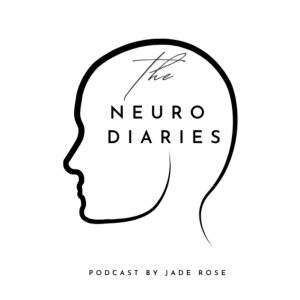
Wednesday Sep 25, 2024
Ep 8 - OCD & Postpartum Depression with Courtney Welsh
Courtney Welsh, a writer, speaker, and mental health advocate, shares her journey of raising a neurodivergent child and her own mental health struggles. She emphasizes the importance of removing the stigma around raising neurodivergent children and speaking openly about the challenges. Courtney discusses her experience with postnatal depression, generalized anxiety disorder, and obsessive-compulsive disorder (OCD). She highlights the significance of therapy, medication, inner child healing, vulnerability, and self-love in her healing journey. Courtney also opens up about her past experiences of abuse and the decision she made to have an abortion to break the cycle of trauma. In this conversation, Courtney Welsh and Jade Rose discuss topics such as postpartum depression, domestic violence, and abortion. Courtney shares her personal experiences and the challenges she faced in dealing with these issues. She emphasizes the importance of seeking help and breaking the stigma surrounding mental health. Courtney also highlights the need for realistic representations of postnatal depression and the support that should be available to new mothers. Overall, the conversation promotes understanding, empathy, and the importance of self-care.
Takeaways
- Removing the stigma around raising neurodivergent children is crucial for providing support and understanding to parents.
- Seeking therapy and medication can be beneficial in managing mental health conditions such as postnatal depression, anxiety, and OCD.
- Inner child healing, vulnerability, and self-love are essential in the healing journey.
- Breaking the cycle of trauma and creating a safe and loving environment for children is a powerful way to create positive change.
- Acknowledging and working through past experiences of abuse can lead to personal growth and healing. Postpartum depression can manifest differently for each person, but common symptoms include feeling heavy, having no patience, experiencing rage, and feeling a lack of joy or connection with the baby.
- It is important for women to recognize the signs of postpartum depression and seek help early on. Asking for help is not a sign of weakness, but rather a brave and necessary step towards healing.
- The fear of having a baby taken away should not prevent women from seeking help. The healthcare system and community are there to support mothers and keep them with their babies.
- There is a need for realistic representations of postnatal depression in the media, showing the range of experiences and emotions that women may go through.
- Therapy and seeking help should not be reserved for when things are at rock bottom. It can be used as a preventative measure and a way to maintain mental well-being.
- It is important to break the stigma surrounding mental health and to create a supportive environment where mothers feel comfortable asking for help and sharing their experiences.
Keywords
neurodivergent children, mental health, postnatal depression, anxiety, OCD, therapy, medication, inner child healing, vulnerability, self-love, abuse, abortion, trauma, postpartum depression, domestic violence, abortion, seeking help, mental health, stigma, realistic representations, support, self-care
No comments yet. Be the first to say something!